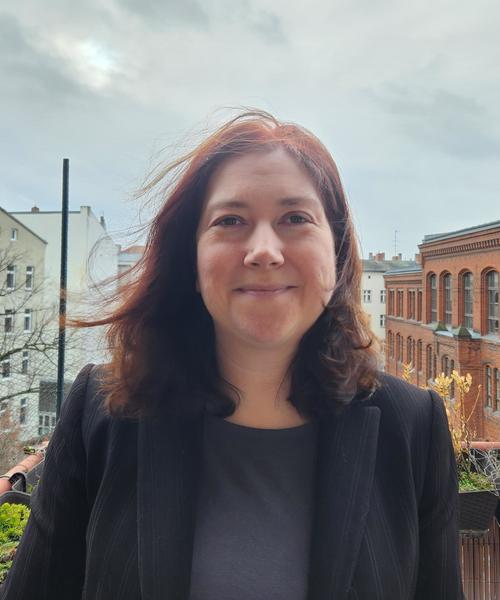Planetary Scientist Professor Lena Noack to Receive Funding from the European Research Council with an ERC Consolidator Grant
Geoscientist at Freie Universität Berlin to receive almost two million euros to research rocky exoplanets
№ 017/2023 from Jan 31, 2023
Professor Lena Noack from the Institute of Geological Sciences at Freie Universität Berlin has been selected for an ERC Consolidator Grant by the European Research Council. The planetary scientist will receive over 1.99 million euros over the course of five years to carry out her research project “DIVerse Exoplanet Redox State Estimations – DIVERSE.” In her research she will address the diversity of rocky planets (the planetary siblings of Earth, Mars, and Venus) in other solar systems. The European Research Council awards ERC Consolidator Grants to promising scientists and scholars who completed their doctorates between seven and twelve years ago and now find themselves in the “consolidation phase” of their academic careers.
The James Webb Space Telescope and upcoming Ariel space telescope have opened up new exciting prospects in observational astronomy, making it possible to study exoplanetary atmospheres in greater depth. Planetary scientist Lena Noack is now planning on making use of the opportunities unlocked by these new technologies: “Many studies on exoplanets tend to focus on biosignatures. For example, the presence of specific atmospheric gases can only be explained by the existence of life on Earth. However, in order to prevent misinterpretations, we first have to gain a better understanding of the potential spectrum of abiotic atmospheres – which also includes evaluating the possibility that life could exist there some day. Not all planets resemble Earth. There could be completely different types of rocky planets out there,” Noack explains.
The “DIVERSE” project will focus on particularly unusual exoplanets (here referred to as “Class X planets”), which have a strongly reduced interior chemistry. The result would be an atmosphere that was formed by volcanic outgassing, but one which would look quite different to that of Earth or its neighboring planets. At least for some time, the atmosphere could be dominated by volatile hydrogen. In fact, these planets would then more closely resemble ice giants, like Neptune in our solar system, where atmospheres are formed from the accretion disc during the creation of planets and are thus dominated by hydrogen and helium. However, it is still very difficult to observe helium in exoplanet atmospheres, despite some progress made in recent years. The Class X planets postulated by Noack would find themselves in the group of planets that resemble Neptune.
“If we were able to discover an exoplanet whose atmosphere primarily consisted of hydrogen without a significant presence of helium, then we would be able to call this a Class X planet,” she adds. Being able to detect a planet of this type would have major ripple effects on the wider research community. The strongly reduced chemistry in the interior would indicate that – in contrast to the rocky planets in the solar system – metal and rock would not have separated into the core and the rocky mantle above it, but would instead have remained mixed for a long time. With the aid of theoretical models, Noack and her group will lay the essential groundwork for later identifying promising candidates for Class X planets for observation. “If we manage to detect several Class X planets, then this would provide us with a statistical understanding of which planetary masses and compositions could produce a planet similar to Earth, and which could result in quite different worlds that do not exist in the Solar System.”
Lena Noack has been a professor at Freie Universität Berlin since 2017. Her research focus is on the geodynamic modeling of planetary processes. Having studied mathematics at Humboldt-Universität zu Berlin and completing her doctorate at the Institute of Planetary Research based at the German Aerospace Center, she moved to the Royal Observatory of Belgium in 2012, before returning to Berlin several years later and joining Freie Universität. She is primarily interested in exploring the link between planetary surfaces and their interiors as well as characterizing potential Earth-like exoplanets around our neighboring stars.
Picture Available for Download
Further Information
Further Information
- List of all ERC grants awarded at Freie Universität Berlin: https://www.fu-berlin.de/en/forschung/kommunikation/preise/erc/index.html
- Latest news from the ERC : https://erc.europa.eu/news
Contact
- Professor Lena Noack, Planetary Sciences and Remote Sensing, Institute of Geological Sciences, Department of Earth Sciences, Freie Universität Berlin, Email: lena.noack@fu-berlin.de
- Freie Universität Berlin, Office of Communication and Marketing, Office of News and Public Affairs, Email: presse@fu-berlin.de

